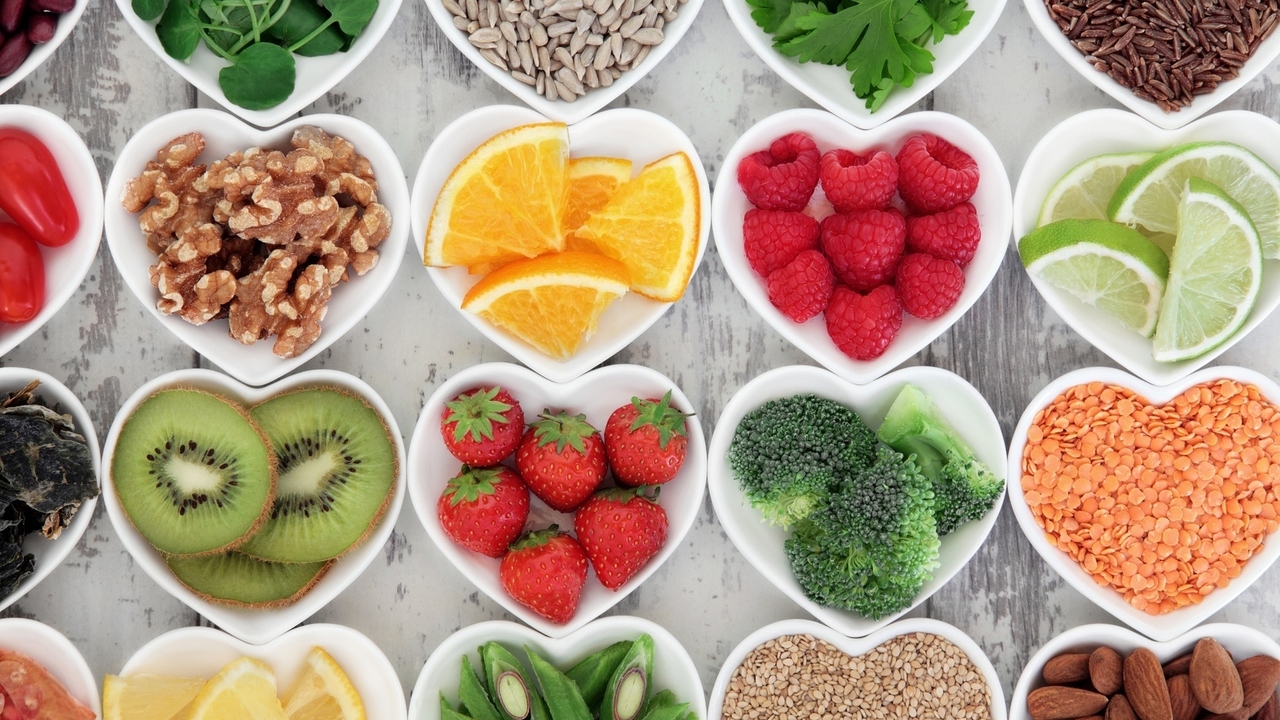 marilyn barbone/Fotolia
marilyn barbone/Fotolia
Eat healthier, exercise, avoid salt — most of us know the rules for maintaining heart health. Putting knowledge into practice is the hard part. How, exactly, do we eat a heart-healthy diet and keep moving amidst the myriad responsibilities of work, home and family?
Make heart health a natural byproduct of your daily routine by implementing these 10 healthy habits.
1) Fill your pantry with good fats.
Nuts are so healthy, the FDA is considering a special label: “Diets containing one ounce of nuts per day can reduce your risk of heart disease.” (1) Stock the pantry with unsalted nuts and seeds.
Replace butter and lard with canola, olive, sesame and peanut oils. (2)
To meet your body’s needs for omega-3s, fill the fridge with salmon, trout, catfish, mackerel, walnuts and flax seeds. The American Heart Association recommends eating two servings of fatty fish per week. (7)
2) Banish the salt shaker from the table.
Enhance homemade food with herbs and spices. Stay away from packaged processed food. Choose frozen veggies over canned.
3) Reduce sugar.
Reach for whole grain breads, brown rice over white, whole grain pasta over enriched wheat. Sweeten plain yogurt with a few berries. Replace soda with seltzers that are free of sodium and sugar, and substitute whole fruit for juice.
4) Start your grocery shopping in the produce section.
Increase fruits and vegetables. See an unfamiliar vegetable? Search for recipes on your smart phone. Spidery greens called garlic scapes can be used like green onions. Fill mini-peppers with a mixture of neufchâtel cheese and green chilies, then roast them.
Spread avocado instead of butter on your morning whole grain toast. Try a few nuts and berries instead of butter on oatmeal. Almost any vegetable, from sweet potatoes to cauliflower to squash, tastes good peeled, chopped and roasted with a little olive oil.
5) An aspirin a day?
While the mechanism by which aspirin can prevent heart attacks is not completely understood, it does reduce platelet clumping associated with clogged blood vessels. (1)
Before you start an aspirin regimen, discuss the risks and benefits with your doctor. Aspirin is no longer recommended to be used as a primary prevention method, particularly if you are under age 65.
A recent study shows that for women under 65 who follow an aspirin regimen, a minor reduction in heart attack, stroke and colon cancer is outweighed by the risk of major gastrointestinal bleeding.(9)
6) Move!
Physical activity lengthens your life and improves its quality, including brain function. Read more here.
On the other hand, sitting for long periods at work or on the couch has been shown to be detrimental to heart health. (5)
Leave your car at the outer edge of the parking lot. Take the stairs. Get up from the couch during a Netflix binge and fold a load of laundry. Make a plan for hikes and museum visits on weekends, instead of sedentary activities like movies or shows.
Stand up and walk to an office mate’s desk instead of popping off an email. Walk during lunch breaks. Stand during phone calls.
7) Sleep.
Poor sleep quality has been linked to increased blood pressure, which is a contributing factor in heart disease. (5)
Encourage a good night’s sleep by banning screens from the bedroom, limiting caffeine and exercise. Give yourself at least six to eight hours of sleep. Too little — or too much — can contribute to cardiovascular problems. (5)
8) Manage chronic illness.
High blood pressure, high cholesterol and diabetes can increase your risk of heart disease. (3) Get regular checkups, and manage your health challenges, to reduce their impact on your heart.
9) Lose weight.
Well, if I could lose weight, I would rule the world, so I won’t tell you how. But if you can, do. Studies show women who reduced their weight by 10 percent, and maintained it for two years, reduce their risk of heart disease. (7)
10) Know the signs.
Heart attacks present differently in women. Chest pain may or may not occur. Watch for (4):
- Pain in your arms, neck, jaw, back or upper stomach
- Shortness of breath
- Cold sweats
- Unusual fatigue
- Dizziness
- Nausea
We all know what we should do. Take action in the grocery store, in the kitchen, and at work, to facilitate healthy eating habits and exercising. And at the end of the day, climb into bed early for your heart.
May all be well.
Reviewed February 4, 20116
by Michele Blacksberg RN
http://www.webmd.com/diet/go-nuts-your-diet
2) Good Fats Tips. GoRedforWomen.org. Retrieved February 3, 2016.
https://www.goredforwomen.org/live-healthy/first-steps-to-prevent-heart-disease-and-be-heart-healthy/good-fats-tips
3) Heart Health for Women. FDA.gov. Retrieved February 3, 2016.
http://www.fda.gov/ForConsumers/ByAudience/ForWomen/WomensHealthTopics/ucm117974.htm
4) Aspirin: Questions and Answers. FDA.gov. Retrieved February 3, 2016
http://www.fda.gov/Drugs/ResourcesForYou/Consumers/QuestionsAnswers/ucm071879.htm#heartattacks
5) Sleep & Heart Disease. GoRedforWomen.org. Retrieved February 3, 2016.
https://www.goredforwomen.org/live-healthy/first-steps-to-prevent-heart-disease-and-be-heart-healthy/sleep-heart-disease
6) Taking regular breaks from desk 'good for the heart. BBC.com. Retrieved February 5, 2016.
http://www.bbc.com/news/health-12166478
7) The Skinny on Fat: Good Fats vs. Bad Fats. WebMd.com. Retrieved February 5, 2016.
http://www.webmd.com/diet/obesity/skinny-fat-good-fats-bad-fats?page=2
8) Maintain Weight, Lower Heart Disease Risk. GoRedforWomen.org. Retrieved February 5, 2016.
https://www.goredforwomen.org/about-heart-disease/heart_disease_research-subcategory/maintain-weight-lower-heart-disease-risk





Add a CommentComments
There are no comments yet. Be the first one and get the conversation started!